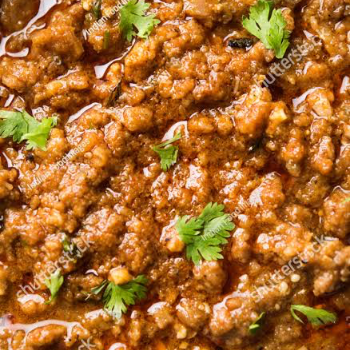In the bustling city of Nagpur, where life moves at a frenetic pace, there's an oasis of tradition that transcends time. It's a place where the aromas of rich spices and slow-cooked meats waft through the air, inviting you to pause and savor the moment. This sanctuary is none other than Amar Saoji Bhojnalay, renowned for its delectable Khima—a dish that has become the savior for many modern-day professionals caught in the whirlwind of work and life.
Meet Rajesh, a software engineer who relocated to Nagpur for a promising job opportunity. Like many of his peers, Rajesh finds himself grappling with the demands of his career while yearning for the comforting flavors of home-cooked meals. As the workload piles up, so does his nostalgia for his mother's kitchen, where the scent of cumin and coriander would greet him after a long day. It was this longing that led him to discover Khima at Amar Saoji Bhojnalay.
Khima, a traditional Indian dish made with minced meat and spices, offers more than just sustenance; it provides an emotional connection to one's roots. For Rajesh and countless others, it's a taste of home amidst the chaos, a culinary experience that transcends generations. But beyond its nostalgic allure, Khima addresses a distinct problem faced by many urban professionals the need for a quick yet nourishing meal that doesn't compromise on authenticity.
In today's fast-paced world, convenience often trumps quality. Many working professionals resort to fast food or instant meals that lack the depth of flavor and nutrition found in traditional dishes. The result is not just a physical dissatisfaction but an emotional void—a disconnect from the cultural and familial ties that food often embodies.
This is where Khima shines as a beacon of hope. At Amar Saoji Bhojnalay, each serving of Khima is a labor of love, prepared with precision and the finest ingredients. The slow-cooked process ensures that every bite is infused with the rich tapestry of spices that India is known for. For Rajesh, the experience is transformative. The moment he takes a bite, he's transported back to his childhood, to the warmth and comfort of home.
But the appeal of Khima is not limited to nostalgia. It also serves a practical purpose, particularly for those like Rajesh who struggle to balance work and personal life. With long hours at the office and little time for meal preparation, professionals often compromise their health and well-being. Khima offers a solution that is both practical and indulgent, providing a fulfilling meal that requires no effort on their part.
The story of Rajesh is not unique. Across India, there are countless individuals who face similar dilemmas. Take Priya, a marketing executive who juggles client meetings and deadlines. For her, Khima is a lifesaver—an antidote to the stress of everyday life. Each mouthful is a reminder of her heritage and a momentary escape from the rigors of her career.
In this way, Khima serves as more than just a dish; it is a bridge between the past and the present, between tradition and modernity. It offers a taste of home for those far from it, a connection to culture in a world that often feels disconnected.
For anyone seeking to resolve the modern culinary dilemma—where time is scarce but the craving for authentic, soulful food is abundant—Khima is the answer. It's a celebration of flavors, a testament to the enduring power of tradition in a rapidly changing world. And for professionals like Rajesh and Priya, it's a cherished reminder that amidst the rush and hustle, there is always a place to find comfort and connection.
So, the next time you find yourself yearning for a meal that feeds not just the body but the soul, remember the humble yet profound Khima. Let it take you on a journey back to your roots, and savor the tradition that continues to nourish both heart and heritage.
Visit Vyaparify Site:
https://id.vyaparify.com/amar-saoji-bhojnalay 
